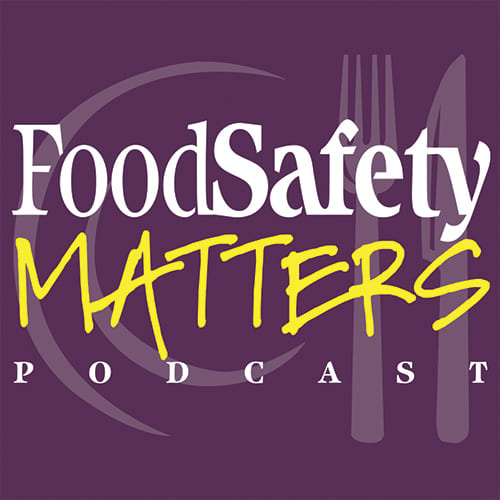
SCROLL
DOWN
The U.S. Food and Drug Administration (FDA) has published the long-anticipated Preharvest Agricultural Water Final Rule, fulfilling Subpart E of the Food Safety Modernization Act (FSMA) Produce Safety Rule. The rule is intended to enhance the safety of water used for produce cultivation by setting requirements for systems-based, pre-harvest agricultural water assessments to inform hazard identification and risk management decision-making.
The dates for compliance (for non-sprout covered produce) with the final rule are: two years and nine months after the effective date for very small farms, one year and nine months for small farms, and nine months for all other farms.
The Preharvest Agricultural Water Final Rule assessments are used to identify conditions that are likely to introduce known or foreseeable hazards into or onto produce or food contact surfaces, and to determine whether, and how soon, corrective or mitigating measures must be implemented to minimize risks associated with pre-harvest agricultural water. Farms are required to conduct assessments of their pre-harvest agricultural water annually, and whenever a significant change occurs, to identify any conditions likely to introduce known or reasonably foreseeable hazards into or onto covered produce or food contact surfaces.
Requirements for harvest and post-harvest uses of agricultural water, as well as the agricultural water requirements for sprouts, have not changed. Specifically, the final rule:
- Establishes requirements for agricultural water assessments that evaluate a variety of factors that are key determinants of contamination risks associated with pre-harvest agricultural water, including an evaluation of the water system, water use practices, crop characteristics, environmental conditions, potential impacts on water from adjacent and nearby land, and other relevant factors
- Includes testing pre-harvest agricultural water as part of an assessment in certain circumstances
- Requires farms to implement effective mitigation measures within specific timeframes based on findings from assessments; hazards related to certain activities associated with adjacent and nearby land uses are subject to expedited mitigation
- Adds new options for mitigation measures, providing farms with additional flexibility in responding to findings from their pre-harvest agricultural water assessments.
To implement the Preharvest Agricultural Water Final Rule and provide training, FDA intends to work closely with its partners including state regulators, the National Association of State Departments of Agriculture (NASDA), educators, and groups like the Produce Safety Alliance.
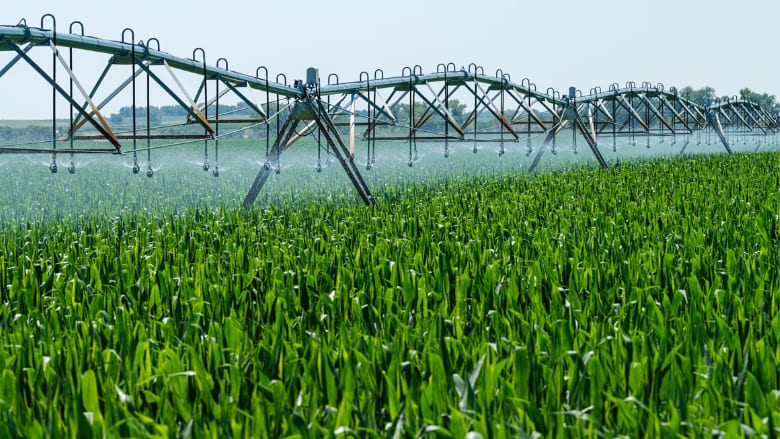
FDA Publishes FSMA Pre-Harvest Agricultural Water Final Rule
Thanks, Sesame: U.S. Food Recalls Due to Undeclared Allergens Skyrocketed in 2023
Image credit: Dr_Microbe/iStock / Getty Images Plus via Getty Images

A total of 313 food product recall announcements were issued in 2023 by FDA and the U.S. Department of Agriculture (USDA)—an increase of 8 percent over 2022—and foodborne illnesses associated with the recalled products sickened more than 1,000 people and resulted in six fatalities. To uncover recall trends, the U.S. Public Interest Research Groups (PIRG) Education Fund analyzed all 313 recalls issued in 2023 in its Food for Thought 2024 report, finding that undeclared allergens dominated the reasons for food recalls—largely due to sesame—with the number of recalls due to undeclared allergens skyrocketing in 2023.
FDA and USDA Recalls: Top-Line Numbers and Trends
Of the 313 recalls and recall alerts issued in 2023 by both agencies, 224 were issued by FDA, which regulates approximately 78 percent of the U.S. food supply, and 89 were from USDA. In the past few years, the number of recalls issued by FDA has remained fairly consistent; however, recalls issued by USDA increased by 31 percent between 2022 and 2023. The total of 89 USDA recalls issued in 2023 is still well below the totals seen during the 5 years preceding the COVID-19 pandemic. The 89 recalls issued by USDA in 2023 makes for the highest number since 2019.
USDA keeps detailed records about how a food safety issue leading to a recall was discovered. In nearly 44 percent of USDA recalls, food safety issues leading to recalls were discovered by federal (37.1 percent) or state (6.7 percent) regulators, followed by companies (25.8 percent), consumers submitting complaints (23.6 percent), retailers (3.4 percent), and other sources (3.4 percent).
Prolific foodborne illness outbreaks and the associated recalls that occurred during 2023 include:
- Cantaloupe contaminated by Salmonella, sickening more than 400 people across 44 states, resulting in 158 hospitalizations and six deaths. The first cases of salmonellosis were confirmed on October 15, 2023. FDA announced the first voluntary recall by a food company on November 8, 2023, and 11 other companies eventually followed suit with voluntary recalls. The U.S. Centers for Disease Control and Prevention (CDC) declared the outbreak over on January 19, 2024.
- Fruit puree pouches containing cinnamon from a foreign supplier that was intentionally adulterated with lead and cadmium. More than 500 people across 44 states were sickened, with the median age of patients being one year. The North Carolina Department of Health and Human Services alerted FDA of the first four connected cases of lead poisoning in children on October 28, 2023. FDA announced a voluntary recall by WanaBana LLC on October 30, 2023, which was expanded to include WanaBana, Schnucks, and Weis brand pouches on November 9.
Reasons for Food Recalls in 2023
According to PIRG's analysis, half of the total 313 food product recalls (49.2 percent) were issued due to undeclared allergens, followed by contamination by two pathogens: Listeria monocytogenes (15 percent) and Salmonella (8.6 percent). Less common reasons for recalls included lack of inspection/need for reinspection (6.1 percent), foreign matter contamination (4.8 percent), import issues (2.6 percent), Escherichia coli contamination (2.6 percent), Cronobacter contamination (1.3 percent), Hepatitis A contamination (1.3 percent), and choking hazards (1.3 percent).
The number of products recalled because of undeclared allergens skyrocketed in 2023, increasing by 27 percent from the year prior. About 39 percent of that increase was caused by undeclared sesame, which, with the Food Allergy Safety, Treatment, Education, and Research Act (FASTER Act) having gone into effect on January 1, 2023, was added to the "Big 9" list of allergens that are legally required to be disclosed on food packaging. Undeclared sesame was the sole cause of 13 food recalls in 2023.
Additionally, recalls due to foreign matter contamination (i.e., metal, plastic, and other physical contaminants) dropped by 40 percent in 2023 from 2022 (which saw 15 and 25 foreign matter recalls, respectively); recalls due to Salmonella decreased by 31 percent (from 39 in 2022 to 27 in 2023); and recalls due to L. monocytogenes increased by 9 percent (from 43 in 2022 to 47 in 2023).
Most Commonly Recalled Foods in 2023
Pet food recalls also increased, from four in 2022 to seven in 2023, six of which were caused by Salmonella or another microbial contaminant. In one 2023 outbreak linked to pet food, six of the seven sickened people were babies under one year of age.
Snacks like cookies, granola bars, candy, and popcorn were the most commonly recalled food type in 2023, accounting for approximately 20 percent of the total. The other most frequently recalled foods in 2023 were cantaloupe (mostly due to Salmonella) and other fruit (all but one recall because of L. monocytogenes or Hepatitis A), beef (E. coli and foreign matter), soup (undeclared allergens), salad and leafy greens (Listeria and undeclared allergens), poultry (undeclared allergens or undercooked ready-to-eat products), cheese (L. monocytogenes), vegetables (L. monocytogenes), supplements (undeclared allergens), and pet food (Salmonella).
On April 10, 2024, the U.S. Environmental Protection Agency (EPA) issued the first-ever national, legally enforceable drinking water standard to protect Americans from exposure to harmful per-and polyfluoroalkyl substances (PFAS), also known as "forever chemicals" due to their inability to break down over time and their accumulation in the human body and the environment. EPA has also announced $1 billion in funds available for PFAS testing and clean-up in state, territory, and private drinking water supplies.
Just ahead of the recent announcement, on April 9, EPA also released an updated guidance for industry on destroying and disposing of PFAS.
Exposure to PFAS has been linked to cancer, impacts to the liver and heart, and immune and developmental damage to infants and children. EPA estimates that the new standard will reduce PFAS exposure for approximately 100 million people, prevent thousands of deaths, and reduce tens of thousands of serious illnesses.
The new final rule sets legally enforceable levels for five PFAS known to occur individually and as mixtures in drinking water: PFOA, PFOS, PFNA, PFHxS, and HFPO-DA (also known as GenX Chemicals). The rule also sets a limit for mixtures of any two or more of four PFAS: PFNA, PFHxS, PFBS, and GenX chemicals. Details about the final PFAS drinking water standards include:
- For PFOA and PFOS, EPA is setting a Maximum Contaminant Level Goal, a non-enforceable health-based goal, at zero. This reflects the latest science showing that there is no level of exposure to these contaminants without risk of health impacts, including certain cancers.
- EPA is setting enforceable Maximum Contaminant Levels at 4.0 parts per trillion for PFOA and PFOS, individually. This standard will reduce exposure from these PFAS in our drinking water to the lowest levels that are feasible for effective implementation.
- For PFNA, PFHxS, and GenX Chemicals, EPA is setting the MCLGs and MCLs at 10 parts per trillion.
- Because PFAS can often be found together in mixtures, and research shows these mixtures may have combined health impacts, EPA is also setting a limit for any mixture of two or more of PFNA, PFHxS, PFBS, and GenX Chemicals.
EPA estimates that between about 6 and 10 percent of the 66,000 public drinking water systems subject to the rule may have to take action to reduce PFAS to meet these new standards. All public water systems have three years to complete their initial monitoring for these chemicals. They must inform the public of the level of PFAS measured in their drinking water. Where PFAS is found at levels that exceed these standards, systems must implement solutions to reduce PFAS in their drinking water within five years.
Through President Biden's Investing in America agenda, EPA is also making available $1 billion in funding through the Bipartisan Infrastructure Law to help states and territories implement PFAS testing and treatment at public water systems, and to help owners of private wells address PFAS contamination. This is part of a $9 billion investment through the Bipartisan Infrastructure Law to help communities with drinking water impacted by PFAS and other emerging contaminants—the largest-ever investment in tackling PFAS pollution. An additional $12 billion is available through the Bipartisan Infrastructure Law for general drinking water improvements, including addressing emerging contaminants like PFAS.
CERCLA Amendment
Shortly following the finalization of drinking water standards for per- and polyfluoroalkyl substances (PFAS), EPA designated two types of the "forever chemicals"—perfluorooctanoic acid (PFOA) and perfluorooctanesulfonic acid (PFOS)—as hazardous substances under the Comprehensive Environmental Response, Compensation, and Liability Act (CERCLA Act, also known as the Superfund Act), enabling EPA to more effectively address PFOA/PFOS contamination of the environment.
EPA issued the separate CERCLA enforcement discretion policy to make clear that EPA will focus enforcement on parties who significantly contributed to the release of PFAS chemicals into the environment, including parties that have manufactured PFAS or used PFAS in the manufacturing process, federal facilities, and other industrial parties. Designating PFOS and PFOA as hazardous substances under the Superfund Act allows EPA to address more contaminated sites, take earlier action, and expedite cleanups, all while ensuring polluters pay for the costs to clean up pollution that threatens the public health

EPA Finalizes National Drinking Water Standard for PFAS
FDA Releases New Food Fraud Webpage
The U.S. Food and Drug Administration (FDA) has released a new website on economically motivated adulteration (EMA), including food fraud. The purpose of the website is to keep businesses and consumers informed on the latest food fraud developments.
The website includes links on how to report food fraud; examples of food adulteration; how food fraud is detected and monitored; enforcement and legal consequences, such as recalls, seizures, and import refusals; guidance documents to assist manufacturers and importers; and a list of import alerts.
EMA occurs when "someone intentionally leaves out, takes out, or substitutes a valuable ingredient or part of a food," according to FDA. EMA also occurs when a substance is added to a food to make it appear better or of greater value.
Food fraud is a common type of EMA that FDA investigates, but EMA also occurs with other products, including animal food and cosmetics. Some types of EMA are also misbranding violations. Estimating how frequently food fraud occurs or its exact economic impact can be challenging because food fraud is designed to avoid detection. Outside estimates by experts have found that food fraud affects 1 percent of the global food industry at a cost of approximately $10–$15 billion per year, although more recent expert estimates peg the cost as high as $40 billion per year.
Food fraud can also lead to major health issues and even death. Some examples include lead poisoning from adulterated spices and allergic reactions to a hidden or substituted ingredient that contains a small amount of just one food allergen.
Click here to visit FDA’s new EMA website.
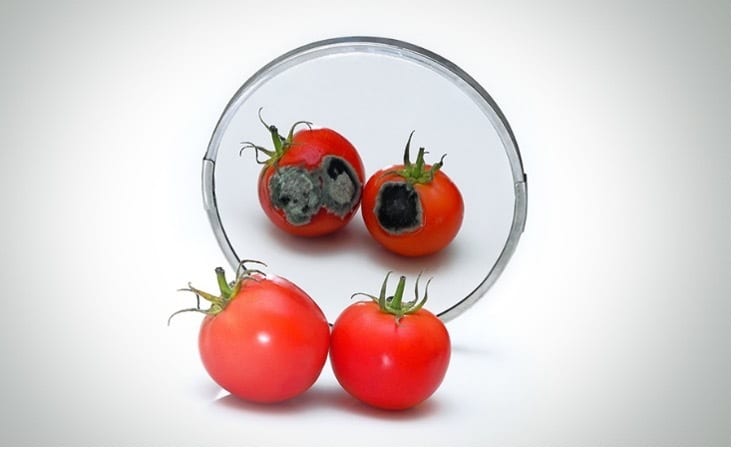
Image credit: Dr_Microbe/iStock / Getty Images Plus via Getty Images
Highly Pathogenic Avian Influenza (HPAI) H5N1, also known as the "bird flu," continues to spread across the U.S., with concerns recently elevated over two confirmed cases in humans who were exposed to infected dairy cattle. To address the spread of HPAI H5N1, USDA's Animal and Plant Health Inspection Service (APHIS) has issued a federal order that requires testing of dairy cows for the virus, as well as mandatory reporting.
Effective April 29, 2024, the federal order requires mandatory testing of dairy cattle at an approved National Animal Health Laboratory Network (NAHLN) laboratory prior to the interstate movement of the cows. Owners of herds in which dairy cattle test positive for interstate movement will be required to provide epidemiological information, including animal movement tracing. Dairy cattle moving interstate must adhere to conditions specified by APHIS. Additionally, testing will be required for lactating dairy cattle. Testing requirements for other classes of dairy cattle will be based on scientific factors concerning the virus and its evolving risk profile.
The federal order also requires laboratories and state veterinarians to report positive Influenza A nucleic acid detection diagnostic results (e.g., PCR or genetic sequencing) in livestock to USDA APHIS, as well as positive Influenza A serology diagnostic results.
USDA and FDA stress that the U.S. commercial milk supply is safe because of both the pasteurization process and the required destruction or diversion of milk from ill cows.
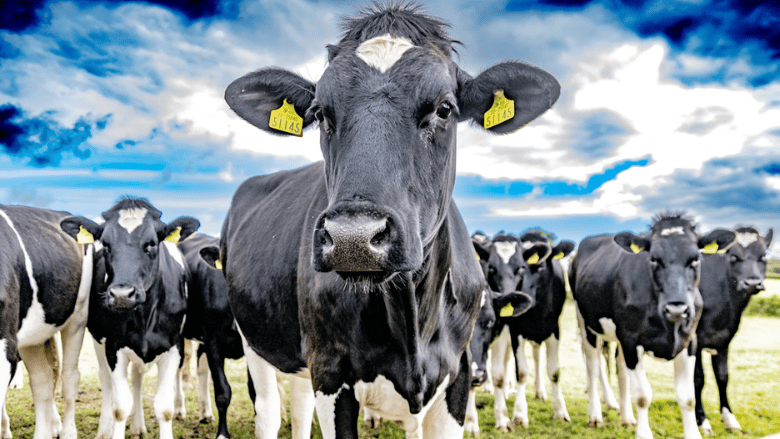
USDA Now Requires HPAI Testing for Dairy Cattle, Mandatory Reporting
Only two states and two territories—Mississippi, Pennsylvania, Puerto Rico, and the Virgin Islands—are at the "optimal level" of FDA Food Code adoption, meaning they adopt the newest version in its entirety as soon as it is released, according to FDA's latest Food Code Adoption Report. The report covers the period ending on December 31, 2023.
The FDA Food Code is a model that assists state, local, tribal, and territorial (SLTT) food control jurisdictions by providing a scientifically sound, technical, and legal basis for regulating the food retail and foodservice sector. The first Food Code was published in 1993, and since 2001, it has been updated in four-year intervals, with the 2022 Food Code being the most recent edition. FDA encourages widespread, uniform, and complete adoption of the code.
As of December 31, 2023, 35 states have adopted one of the three most recent versions of the FDA Food Code (2022, 2017, and 2013), representing 63.36 percent of the U.S. population. This is an increase of one state from the prior reporting period (ending December 31, 2022). Only 21 states, representing 46.28 percent of the U.S. population, have adopted either the 2022 or 2017 version of the code, which is an increase of three states (Kansas, North Dakota, and Colorado) from the 2022 report.
A total of three states—Pennsylvania, Mississippi, and Colorado, representing 6.56 percent of the U.S. population—as well as Puerto Rico and the Virgin Islands, have adopted the 2022 FDA Food Code. This is an increase of one state (Colorado) from the previous reporting period. Additionally, two jurisdictions—an agency in Georgia and the State of Missouri—are working towards adoption of the 2022 FDA Food Code. Another agency in Iowa is in the process of a "red tape review" on the adoption of the 2017 version (with Supplement).
FDA's report also noted that adoption of the 2017 Food Code increased every year since it was published in February of 2018 and before the 2022 code was published; that adoption of the 2013 code was increased before the 2017 code was published, and decreased after the 2017 code was published; and that adoption of the 2009 Food Code decreased from 22 states to eight states between 2016 and 2023.
Several jurisdictions are behind the times in terms of Food Code adoption, with seven states and one territory—South Dakota, Indiana, Louisiana, one of two agencies in New York, Vermont, Alaska, New Jersey, and Guam—using the 1995, 2001, or 2005 version.

Only Three U.S. States Have Adopted Most Recent Version of FDA Food Code
Originally proposed in April 2023, USDA's Food Safety and Inspection Service (FSIS) has finalized its determination to declare Salmonella an adulterant in raw, breaded and stuffed chicken products at levels exceeding 1 colony forming unit per gram (CFU/g). The final determination is part of FSIS' ongoing efforts to reduce the cases of salmonellosis in humans attributable to chicken products in the U.S.
FSIS will carry out verification procedures, such as sampling and testing of incoming raw chicken prior to its stuffing and breading, to ensure establishments that produce products covered by the final rule are sufficiently controlling Salmonella. If the chicken component in covered products does not meet the new standard, the product lot represented by the sampled component would not be permitted to be used to produce the final raw, breaded and stuffed chicken products.
The determination, including FSIS' sampling and verification testing, will be effective 12 months after its publication in the Federal Register.
FSIS is targeting raw, breaded and stuffed chicken products in its final determination due to its reoccurring association with Salmonella outbreaks; despite only accounting for less than 0.15 percent of the total U.S. chicken supply, these products have represented approximately 5 percent of all chicken-associated Salmonella outbreaks in the U.S. between 1998 and 2020. Since 1998, FSIS and its public health partners have investigated 14 Salmonella outbreaks and approximately 200 illnesses associated with these products.

USDA-FSIS: Salmonella Officially an Adulterant in Breaded, Stuffed Raw Chicken Products
Every year, the European Food Safety Authority (EFSA) compiles a report analyzing pesticide residue monitoring data for foods on the European market. The most recent report covering data from 2022 shows that the assessed risk to EU consumer health from pesticides in foods is low.
Based on 110,829 food samples collected and tested in the EU during 2022—an unprecedented number—96.3 percent of samples fell below maximum residue levels (MRLs) for pesticide residues. Of these 110,829 samples, 3.7 percent exceeded MRLs, of which 2.2 percent were deemed noncompliant (i.e., results in a given sample exceeded MRLs after taking into account the measurement uncertainty).
Additionally, of the subset of 11,727 samples analyzed as part of the EU-coordinated multi-annual control program (EU MACP), 98.4 percent contained residues below legal limits, and 0.9 percent were deemed noncompliant.
EU MACP randomly collects and analyzes samples of 12 food products every year, sampling the same basket of products every three years. For 2022, the chosen foods were apples, strawberries, peaches, wine (red and white), lettuces, head cabbages, tomatoes, spinaches, oat grain, barley grain, cow's milk, and swine fat. Of the samples analyzed in the EU-coordinated program, 51.4 percent (6,023 samples) were free of quantifiable levels of residues, 47 percent (5,512) contained one or more residues in concentrations below or equal to MRLs, and 1.6 percent (192) contained residues exceeding MRLs.
Overall, based on EU MACP data, the rate of pesticide MRL exceedance for the same 12 food products analyzed in 2022 (which were last analyzed in 2019) decreased by 0.4 percent since 2019. Compared to 2019 and 2016, the exceedance rate fell for apples, peaches, strawberries, wine, and swine fat; and for spinach, the exceedance rate has fallen since 2019. No samples of cow's milk with residues above the MRL were found in 2022, which is the same as was found in 2019 and 2016. Exceedances rose from previous years for head cabbages, tomatoes, lettuces, barley, and oat grain.
Additionally, to assess acute and chronic risk to consumer health, EFSA estimated dietary exposure to pesticide residues among the EU population and compared the value with available health‐based guidance values (HBGV). EFSA estimates that, for 111 of the 163 active substances assessed, the probability of an individual exceeding HBGVs in a day is zero for the 40 commodities included in the assessment, covering 30 European subpopulation groups and 17 EU Member States. In the chronic probabilistic assessment, only one active substance in two populations resulted in an estimate of a consumer exceeding an HBGV. In cases where the estimated dietary exposure for a specific pesticide/product combination was calculated to exceed the HBGV, and for those pesticides for which no HBGV could be established, the competent authorities took corrective measures.

EFSA: Pesticide Residues Below Legal Limits in More Than 96 Percent of EU Food Samples
The Food and Agriculture Organization of the United Nations (FAO) has announced the launch of the Reduce the Need for Antimicrobials on Farms for Sustainable Agrifood Systems Transformation (RENOFARM) initiative, a global 10-year effort to mitigate the growing public health threat that is antimicrobial resistance (AMR). The initiative has already been piloted in Indonesia, Uganda, and Nigeria, but FAO aims to expand its reach to more than 100 countries. The purpose of RENOFARM is to provide countries with policy support and technical assistance while facilitating capacity-building and knowledge-sharing to help reduce the need for antibiotics in livestock production, helping to achieve the UN's Sustainable Development Goals for 2030.
Working together with governments, farmers, the private sector, civil society organizations, and other stakeholders, RENOFARM will promote "5 Gs" at the farm level: Good Health Services, Good Production Practices, Good Alternatives, Good Connections, and Good Incentives. FAO will implement the project in alignment with its One Health Quadripartite partners—the World Health Organization (WHO), the UN Environment Program (UNEP), and the World Organization for Animal Health (WOAH).
Indonesian Pilot
RENOFARM is already being piloted in the poultry sector in Indonesia's Lampung province. With the support of government agencies and other local stakeholders, a Farmers Field School (FFS) focused on empowering farmers at the community level is being established to build farmers' capacity and awareness regarding AMR control. Using training materials based on local experience and best practices, RENOFARM trained 20 FFS facilitators and trialed the concept with approximately 20 local poultry farmers.
A focus group discussion held as part of the Indonesian pilot showed improvements among broiler chicken farms in Lampung Province regarding livestock management practices, especially the transition to a semi-closed cage system. This change has positively impacted biosecurity practices and efforts to reduce antimicrobial use. However, antibiotic programs for chicks are still being carried out due to concerns about the quality of chicks and farmer biosecurity discipline. Other pilots are underway in Uganda and Nigeria.

FAO Launches Initiative to Reduce Antimicrobial Use on Farms in More Than 100 Countries
Angela Anandappa, Ph.D., has joined the Editorial Advisory Board of Food Safety Magazine. Dr. Anandappa has researched and worked in food industry safety and genomics for over 20 years, and she is the CEO and Founding Director for the Alliance for Advanced Sanitation. She has led the Alliance in its strategic and scientific direction since its inception at the University of Nebraska–Lincoln. She is also the Executive Director of the Animal Digestible Food Packaging Initiative. Additionally, she helped establish the Food Systems Innovation Center at the University of Kentucky with the goal of providing resources for local food businesses. Previously, Dr. Anandappa led the supply chain food safety pillar of The Kraft Heinz Company. She has been instrumental in product development and the launch of food, beverage, and animal feed products ranging from very small to billion-dollar brands.
Dr. Anandappa earned her Ph.D. in Animal and Food Science from the University of Kentucky with a focus on food microbiology and systems level food safety programs. She is a member of the International Association for Food Protection (IAFP), the Association of Food and Drug Officials (AFDO), and other industry associations, and is the Chair of the Food Chemical Hazards and Food Allergy PDG at IAFP. We warmly welcome to Dr. Anandappa to the Editorial Advisory Board!

Dr. Angela Anandappa Joins Food Safety Magazine Editorial Advisory Board

McDonald's Corp. has appointed Chris Kempczinski to the combined role of Chief Executive Officer and Chairman of the Board.
Nelson-Jameson has appointed Heather Wucherpfennig as Senior Manager of Organization Development, Josh Sabo as Safety and Hazardous Material Program Coordinator, Thong Vang as Quality Assurance Program Coordinator, and Stephanie Weichelt as Quality Coordinator.
Standard Meat Company has appointed Keith Blanks as Chief Commercial Officer.
Kathleen Glass, Ph.D., received Food Safety Magazine's Distinguished Service Award for 2024. The award was presented at the 2024 Food Safety Summit, which took place May 6–9 in Rosemont, Illinois.
FMI—The Food Industry Association has appointed Julie Savoie as Senior Director of Workforce, Talent, and Sustainability. Additionally, Krystal Register has been promoted to Vice President of Health and Well-Being, Diane Gill to Controller and Vice President of Financial Operations, Steven Harris to Senior Director of Government Relations and Strategic Initiatives, and Tom Cosgrove to Director of Industry Relations.
Cory Lunde has been promoted to Vice President of External Affairs for Western Growers.
Wienerschnitzel has added Doug Koob to its executive team as Chief Development Officer.
The International Association for Food Protection (IAFP) has elected Pamela Wilger to the Executive Board as Secretary.
After forming its Strategic Advisory Group with Jennifer McEntire, Ph.D., in March 2024, Provision Analytics is pleased to announce its new Strategic Advisors: Joan Rosen, Sharon Beals, Donna Lynn Browne, and Courtney Cox.
The Food Production Solutions Association has hired Matthew R. Ott as its new President and CEO.

KEMPCZINSKI

BLANKS

GLASS

SAVOIE
Ross Treleven assumed the position of President and CEO of Sprague Pest Solutions as Alfred ("Alfie") H. Treleven III stepped back from his role as CEO.

FSSC 22000 Version 6 Newly in Effect
The latest version of the FSSC 22000 certification scheme—FSSC 22000 Version 6—has gone into effect as of March 31, 2024. The new version of the standard brings significant changes impacting food production companies and the certification process by integrating requirements of ISO22003-1: 2022, and strengthens the requirements to support organizations in their contributions to meeting the United Nations' Sustainable Development Goals (UN's SDGs).
Key changes include:
- Realignment of Food Chain Categories: FSSC 22000 Version 6 introduces changes to food chain categories according to ISO22003-1:2022. The updated scheme adds two new categories: BIII, the pre-process handling of plant products, and C0, which focuses on animal primary conversion. The pet food production categories have been removed, and pet food is now covered in categories C and D. Transport has been merged in Category G. Finally, trading and broking is also added in Category FII. As a result, some organizations will change to a different food safety category.
- FSSC 22000 Additional Requirements: The additional requirements in Version 6 include more detailed clauses on integration of the requirements on food safety and quality culture, validation/verification of packaging claims, criteria for using recycled materials, more detailed allergen management, environmental monitoring, quality control, purchase and installation of new equipment, and handling of food loss and waste.
- Audit Duration: Due to changes in the accreditation document ISO22003-1: 2022 and the additional requirements, the audit time for FSSC 22000 audits will need to be revised. For many organizations, the audit time will increase.
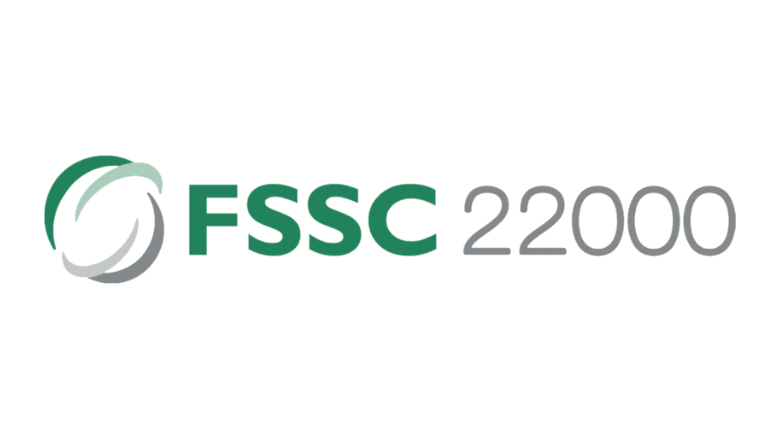
Kroger's Traceability Policy Goes Beyond FSMA 204 by Including All Foods
In an effort to achieve compliance with FSMA 204, the Kroger Co recently published a Food Traceability Policy and Requirements document, which outlines for suppliers the steps they must take to ensure interoperability with Kroger's traceability system.
Although the Food Traceability Final Rule only applies to specific commodities listed on FDA's Food Traceability List (FTL), Kroger intends to leverage GS1 standards to collect and record traceability information for all food products entering Kroger facilities. The retailer is also mandating a compliance date of June 30, 2025—six months sooner than FDA's January 2026 compliance date for FSMA 204.
Kroger's traceability policy requires suppliers to:
- Adhere to Kroger's EDI 856 ASN guideline
- Transmit an EDI 856 ASN document for every shipment of products to any Kroger facilities
- Align logistic unit requirements to match Kroger track-and-trace supply chain receiving specifications
- Certify that palletized barcode labels on physical products arriving at the receiving dock correspond to the EDI 856 ASN data transmission.
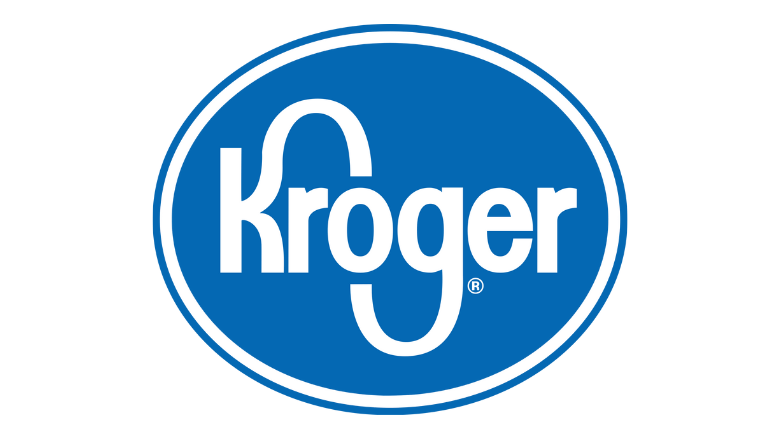
Walmart to Receive 2024 IAFP Black Pearl Award
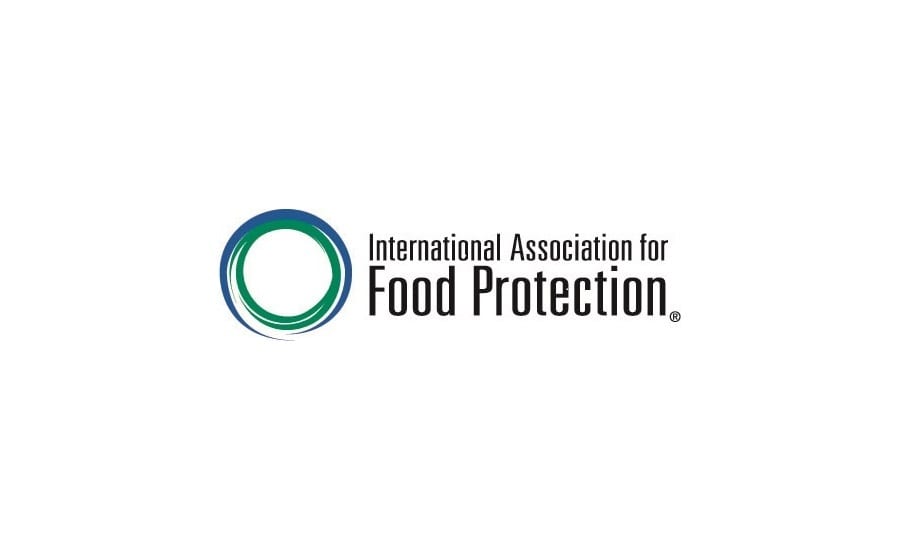
The International Association for Food Protection (IAFP) has selected Walmart Inc. as the 2024 recipient of the Black Pearl Award. Sponsored by F&H Food Equipment Company, the Black Pearl Award will be presented at IAFP's Annual Meeting, taking place July 14–17, 2024 in Long Beach, California. This honor is given annually to one company for its efforts in advancing food safety and quality through consumer programs, employee relations, educational activities, adherence to standards, and support of the goals and objectives of IAFP.
Each week, approximately 255 million customers and members visit more than 10,500 Walmart stores and its numerous eCommerce websites in 19 countries. When it comes to groceries, Walmart's size and scale give the company a unique opportunity to engage with multiple elements of the global food supply chain. In Fiscal Year 2023, grocery sales accounted for 59 percent of net sales for Walmart U.S. Food safety is a critical element of Walmart's culture, and it is embedded within every aspect of its day-to-day operations.
GS1 US Releases Suite of FSMA 204 Traceability Resources for Industry
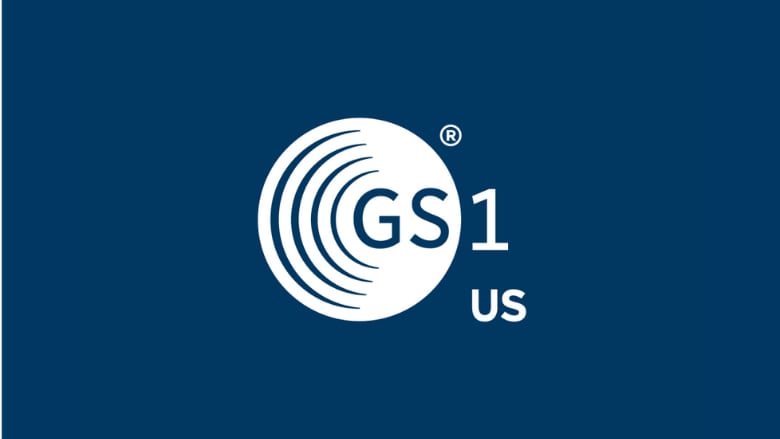
GS1 US has published a new suite of resources to help companies address the requirements of FSMA 204. The documents are designed to help trading partners understand how they can use GS1 Standards to meet the stringent recordkeeping requirements for "high-risk" foods.
The new resources include the Retail Grocery and Foodservice Application of GS1 System of Standards to Support FSMA 204 Guideline (version 2.0), which can assist the U.S. food industry with implementing GS1 Standards for traceability and specifically to help meet the requirements.
An accompanying document, GS1 US EPCIS Recommendations for FSMA 204 Critical Tracking Events, shows how the Electronic Product Code Information Services (EPCIS) Standard can be used to capture supply chain events and what information from those events can be used to supplement the needed data for FSMA Rule 204 CTEs and KDEs.
The third document, GS1 US EDI Implementation Recommendation for FSMA 204 Critical Tracking Events, supplements the new Guideline by providing direction for implementing the X12 Electronic Data Interchange (EDI) 856 Advance Ship Notice to help meet the Shipping CTE requirements of FSMA Rule 204. It seeks to increase consistency and ease of implementation by explaining the data elements and codes and providing real-world examples. This document provides guidance on how to incorporate the additional data required by FSMA Rule 204 into existing EDI implementation.
Finally, a new e-learning course, How to Apply GS1 Standards for FSMA 204 Requirements, is now available. The module provides an interactive overview of FSMA Rule 204 requirements and how to utilize the GS1 System of Standards to help meet those requirements.
UK FSA Publishes First-Ever Positive Safety Assessment for CBD Product as Novel Food Supplement
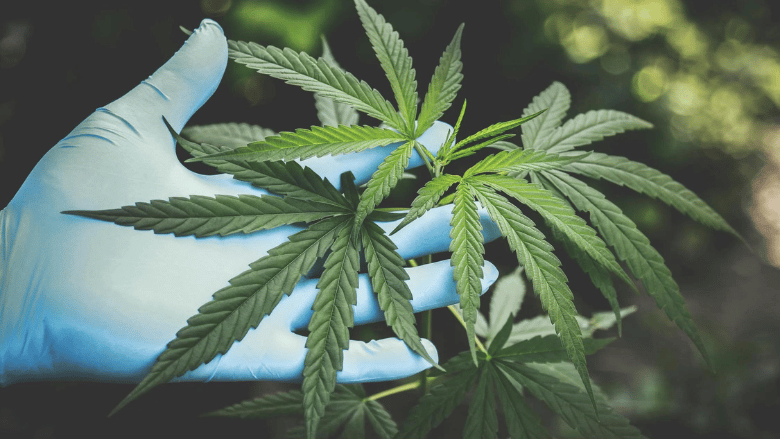
The UK Food Standards Agency (FSA) has granted its first positive safety assessment to a cannabidiol (CBD) product intended for use as a novel food supplement, which, according to the producing company, also represents the first time that any leading regulatory agency worldwide has published a food safety assessment for CBD.
Specifically, FSA granted a positive safety assessment to the company Pureis® for its Ultra-Pure CBD product, concluding that Pureis provided sufficient information to assure Ultra-Pure CBD is safe as a food supplement. CBD is classified as a novel food under UK regulatory law. FSA novel food regulations require novel foods to undergo a thorough approval process prior to entering the UK market.
FAO, Mars Enter Agreement to Promote Adoption of Codex Standards, Tackle Mycotoxins in Corn

The Food and Agriculture Organization of the United Nations (FAO) and Mars Inc. have entered a Memorandum of Understanding (MoU) to promote better global understanding and application of Codex Alimentarius international food safety standards. Specifically, FAO and Mars have committed to work on enhancing mycotoxin management in corn value chains through modeling approaches, and to strengthen information-sharing on emerging food safety threats. Through the MoU, the two parties are forging a path to expand their existing cooperation on strengthening food safety, supporting One Health efforts, and enhancing the FAO Hand-in-Hand Initiative.
Through the agreement, FAO and Mars will exchange knowledge and information to support science-based decision-making on food safety. The MoU lays out plans for FAO and Mars to cooperate on developing guidance for increased uptake of Codex standards and codes of practices by industry; for example, the two parties will work on guidance for food business operators regarding food allergen management, and to identify best practices for mycotoxin control and mitigation in the corn supply chain. FAO and Mars will also continue to collaborate on analysis and discussion around emerging food safety issues, new methods and technologies, and trends in research and development that could impact food safety.
The MoU has been developed within the context of the FAO Strategy for the Private Sector Engagement (2021-2025), which outlines how private sector partnerships can provide innovative tools, resources, knowledge, and technologies that are critical for reinforcing FAO's real-world impact.
ONLINE & OF NOTE
A recent publication from the World Trade Organization (WTO)—written in collaboration with the Food and Agriculture Organization of the United Nations (FAO), food safety nonprofit SSAFE, the International Seed Federation (ISF), and other experts in food safety and food crime spanning the supply chain—explores the challenges of combating food fraud and illegal practices in food trade. The publication also explains the WTO rulebook and the role it can play in combatting food fraud and illicit food trade. The WTO rulebook also contains agreements that together create a legal framework for international food trade, helping to combat illicit trade and fraud.
WTO Publishes Guide to Combating Food Fraud, Illicit Trade of Food
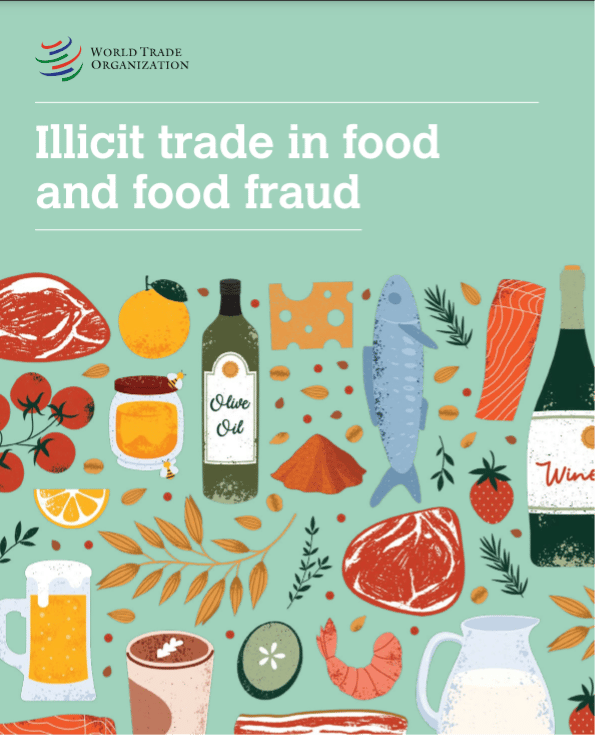
View and download publication: Illicit Trade in Food and Food Fraud
